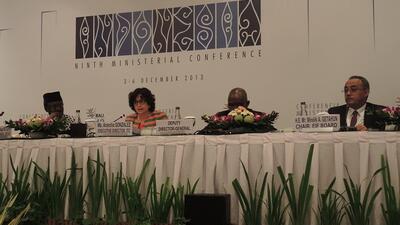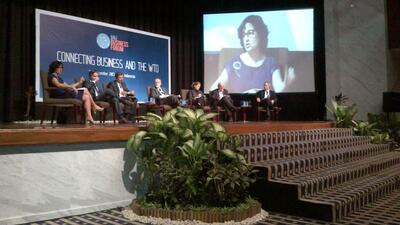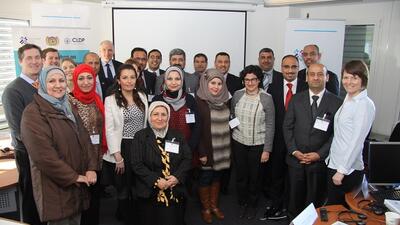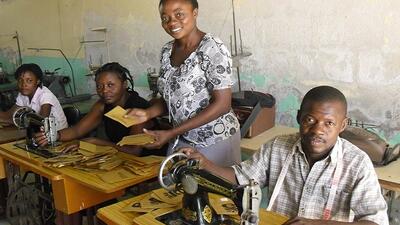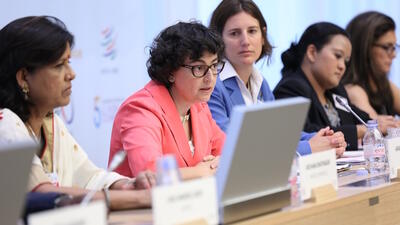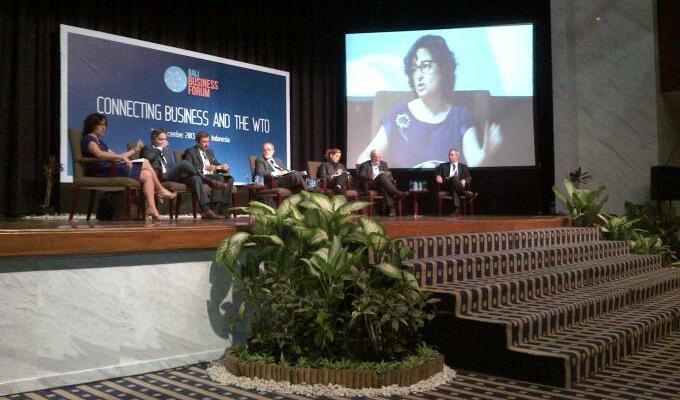
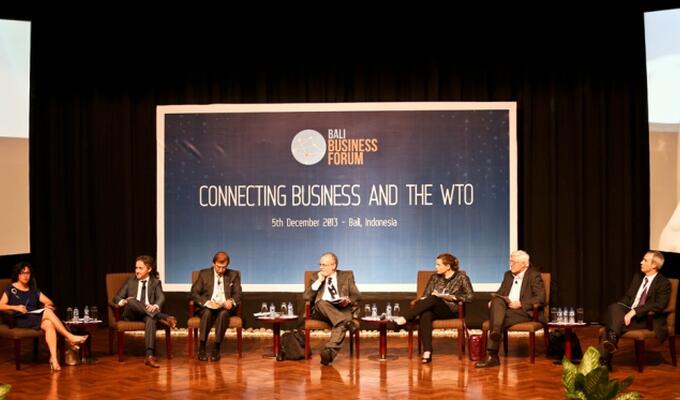
Business leaders debate how to engage with WTO
The business community can engage with multilateral trade negotiations at different levels, but they should leave negotiating to government representatives, agreed members at the panel ‘Connecting business and the WTO,’ organized by the Evian Group. The session was part of the Bali Business Forum (BBF), which took place in parallel with the Ninth World Trade Organization (WTO) Ministerial Conference this week.
The BBF, of which ITC is an official partner, is a venue for the business community to examine the most critical issues in the global trade agenda, and interact in a dialogue with ministers and delegates at the Conference.
ITC plays an important role in connecting small businesses in developing countries with the multilateral trading system and the WTO, said Executive Director Arancha González. ITC helps businesses both directly by increasing their competitiveness through training and advisory services, and indirectly, by advising governments on how to build a business environment that is conducive to international trade for small and medium-size enterprises (SMEs), she said. There are four areas in which the global trading system particularly effects SME competitiveness, she said: services, which play a major supportive role for exporters, particularly in their home countries; access to trade finance, without which most SMEs do not have the means to export; non-tariff measures (NTMs), which represent the biggest obstacles to trade, particularly for SMEs, which are less equipped to deal with them; and trade facilitation, which can act to counter NTMs and other obstacles that companies face when trading.
Businesses have an interest in the success of the ongoing negotiations, primarily because a deal reached at the Bali Ministerial would rekindle confidence in the multilateral trading system, said Perry Robinson, Vice President of web hosting company Rackspace. At the same time, the pro-development package, known as the Doha Development Agenda, which was first tabled in 2001 but has not yet been approved, is less of a concern for business, he said. Global trade patterns have changed significantly, and developing countries, including the poorest, are becoming increasingly integrated into the world trade system through their involvement in global value chains, which now dominate international trade, he said.
While businesses in the United States remain supportive of the WTO, they pay more attention to plulilateral trade agreements, such as the Trade in Services Agreement (TISA), where there is faster progress, agreed Jake Colvin, President of Global Trade Issues at the National Foreign Trade Council and Jan Eggert, Director General of the Foreign Trade Association. Pluilateral agreements are signed by interested parties, who are willing to cooperate are liberalize trade in a certain area.
Companies in the information technology sector would like to see liberalization of trade in services and cross-border data flows, said Jennifer Sanford, Senior Manager at CISCO Systems, which is based in the United States.
Businesses could get involved in trade negotiations at the preparatory phases, through their own national governments, and can also engage in debates such as the annual WTO Public Forum, ITC’s González said.






